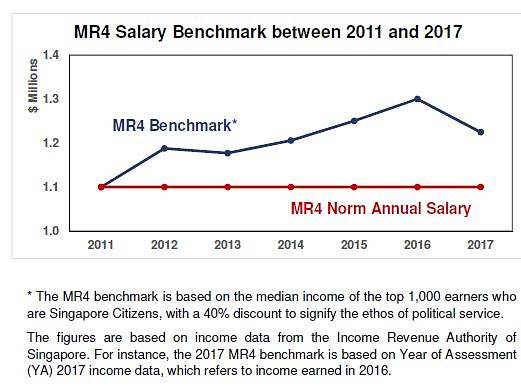SINGAPORE: Ministerial salaries and their guiding framework will remain unchanged, said Deputy Prime Minister Teo Chee Hean in Parliament during the Committee of Supply (COS) debates on Thursday (Mar 1).
Mr Teo’s announcement came after several Members of Parliament such as Mr Vikram Nair and Mr Liang Eng Hwa asked whether a salary review has been conducted.
The last review by an independent committee chaired by Dr Gerard Ee was completed on Dec 30, 2011, and a White Paper on this was subsequently endorsed by Parliament in January 2012. The 2011 committee had suggested reviewing the ministerial salary scheme every five years, and a new review committee was formed by Prime Minister Lee Hsien Loong in 2017.
The Deputy Prime Minister said Mr Lee had done so last year to review whether the salary framework remains appropriate and valid against its intended goals and what adjustments may be useful. The committee was also to look into whether “there is a need to adjust the salaries, should there be a change in overall salary levels based on the proposed framework”, he added.
Chairing the committee was Dr Ee, and the other eight members were: Dr Abdul Razakjr Omar, Mr Thomas Chua, Mrs Fang Ai Lian, Ms Euleen Goh, Mr Stephen Lee, Ms Mary Liew, Mr Ramasamy Dhinakaran and Mrs Mildred Tan-Sim.
The committee’s conclusion is that the scheme remains “relevant and sound”, but it recommended adjusting the salary levels to match the updated benchmark and some finetuning on the National Bonus conditions, Mr Teo said.
For salary levels, the committee recommended that this is adjusted annually in line with annual benchmark movements. The committee noted the benchmark has increased by 9 per cent since 2011, or a compound growth rate of 1.5 per cent per year over this period, and that no adjustments were made to salaries over this period, he said.
It also recommended reviewing the ranges for the National Bonus indicators to take into consideration changing economic conditions and national outlook, and to adjust the allowance for Non-Constituency Members of Parliament (NCMPs) from 15 per cent of the allowance for elected MPs to 20 per cent.
The committee suggested this to “recognise that NCMPs have full voting rights in Parliament from April 2017”, Mr Teo said.
In a subsequent media release from the Public Service Division (PSD), committee chairman Dr Ee said: “It is important to ensure that the right salaries are in place, as we believe that having the right people to lead Singapore will have a fundamental impact on the future of Singapore. However, we noted that since the reduction in salaries in 2012, ministers’ salaries have not been adjusted to keep up with the benchmark for six years.”
In response, Mr Teo said the Government has decided not to make any changes, and to maintain the current salary framework and salary level.
Explaining the decision, he said that while the MR4 (or entry-level minister) benchmark has increased by 9 per cent since 2011, the Government noted that the 2017 MR4 benchmark is lower than the 2016 one. It will continue to watch salary trends further, he added.

Chart: Public Service Division
“The Government will, of course, keep this House fully informed of any changes to the salary structure or level,” Mr Teo said, adding it will review the matter again after five years or when it becomes necessary.
Mr Teo was speaking during the Prime Minister’s Office session at the COS debates.




